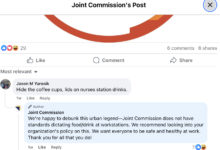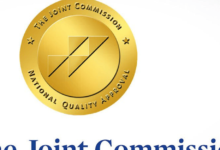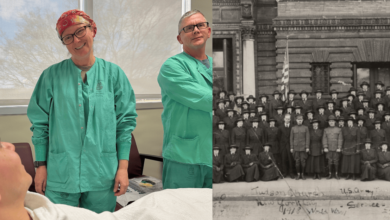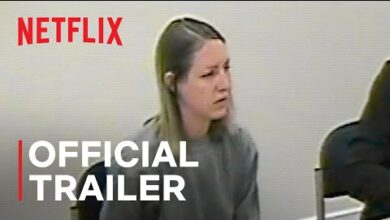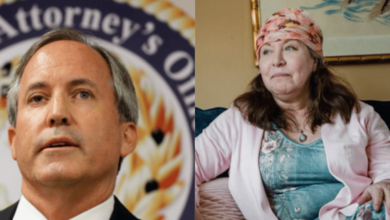Letby was a ‘favourite’ of ward manager, inquiry hears

A former co-worker and friend of serial killer nurse Lucy Letby has reflected on how she was “blind” to what was happening.
Letby, 34, is serving multiple life sentences for the murder of seven babies, and attempted murder of seven others, at Countess of Chester Hospital between June 2015 and June 2016, where she worked as a neonatal nurse.
“I couldn’t understand how I was so blind to any of it”
Nurse T
Following Letby’s sentencing, the Thirlwall Inquiry was called to investigate how Letby’s murders went undetected for so long, and to further establish the facts surrounding them.
Nurse T, a band 6 shift leader nurse in the neonatal unit at the time Letby carried out the killings, gave evidence to the inquiry today.
The nurse, who cannot be named for legal reasons, was a mentor to Letby when she trained at Countess of Chester Hospital as a student nurse.
During the time of the murders, Nurse T was a colleague and a friend to Letby, with whom she spoke both in and out of work time.
She spoke at the inquiry about coming to terms with finding out what Letby had done, gave insight on the circumstances surrounding some of the deaths and about what she thought could be done to prevent another case like Letby’s from happening again.
Christina Lyons, junior counsel to the inquiry, asked Nurse T about the working culture at Countess of Chester, which she described as broadly positive.
However, Nurse T said she had a poor relationship with neonatal unit manager Eirian Powell, describing Ms Powell as “dictatorial” and saying she had “clear favourites” as well as “another small group who were kind of the opposite of that”.
Nurse T said that, if she did have concerns about Letby, she would not have felt comfortable raising them because of this culture – and because Letby was one of Ms Powell’s “favourite nurses”.
She emotionally told the inquiry how she felt “bullied” by Ms Powell, adding: “I don’t feel I had a particularly good working relationship with her. She was the main reason I left the unit.
“Knowing how much she favoured [Letby], I certainly would not have gone to her if I had concerns.
“I did not have concerns [about Letby], but I certainly would not have gone to Eirian Powell if I had them because I don’t think I’d have been listened to. I think maybe more than not listened to, maybe I’d have just been told I was wrong.”
Nurse T further said that Ms Powell spoke positively of Letby, following her removal from the ward when paediatricians first accused her of harming babies.
“I did have a conversation with [Ms Powell] and she was supportive of [Letby]… she said to me on several occasions that there had been more deaths in that year, but that if you took out those born with congenital abnormalities which were incompatible with life, the numbers were in line [with other years],” she added.
“I find it so difficult to comprehend that anyone could… harm or kill another person, let alone a baby that you’re charged with caring for”
Nurse T
When Child A – the first baby Letby murdered – collapsed suddenly and unexpectedly on the night of 8 June 2015, Nurse T, who had been in neonatal nursing for 15 years by this point, assisted in the resuscitation.
The abruptness of the collapse, the child’s discolouration and other features of Child A’s case, Nurse T said, was like nothing she had seen in her career up to that point.
Child B, Child A’s twin sister, collapsed in the same way with similar discolouration a few days later, despite, according to Nurse T, additional care being given out of fear the baby shared a life-threatening condition with her brother.
By the end of July 2015, Child C and Child D had also been killed by Letby.
Ms Lyons asked Nurse T if, by late-2015, she had begun to be suspicious of the deaths, given that she was aware they were unexpected, clustered – and that Letby was present for them all.
“I never suspected anything sinister, that someone had caused deliberate harm,” she replied.
“I think I was more thinking it [could] be down to a particular batch of fluids, an equipment problem.”
She added: “I am aware of Beverley Allitt; she actually carried out her crimes towards the end of my nurse training… I was also very aware that changes were made to training and mentorship.”
However, Nurse T conceded that it “never crossed my mind” that something like that could happen on her unit.

Lady Justice Thirlwall, the chair of the inquiry
Inquiry chair Lady Justice Thirlwall further pressed Nurse T on why she did not become suspicious of Letby, despite the heightened number of deaths, their strange circumstances and Letby’s seeming involvement in the care of all the babies who had died.
The nurse replied: “It’s just so unbelievable, so out of my sphere of understanding – I find it so difficult to comprehend that anyone could… harm or kill another person, let alone a baby that you’re charged with caring for.”
She said that, to do the job of a neonatal nurse, the team must trust each other and have a presumption that everyone has the same goal of sending the babies home with as few complications and care requirements as possible.
As a result, Nurse T said, suspecting a colleague of murdering a patient ran counter to this.
“We can’t do our jobs without trust,” she said. “I still, now, sometimes wake up and think: how can it be true?
“I know it is, and there are things which came out in the trial and inquiry that have reaffirmed that to me because I couldn’t understand how I was so blind to any of it.”
The nurse added: “I go into work now and I trust my colleagues. You can’t do your job unless you trust each other and I still find it really incomprehensible.”
Ms Lyons asked Nurse T what she thought could be done to keep babies safe on neonatal units in the future.
One suggestion which was put forward earlier in the inquiry was 24/7 CCTV monitoring in the units, something Nurse T did not feel would help. She questioned its efficacy, in particular if the footage is not stored long term.
“A lot of the time, neonatal units are dimly lit with covers over incubators… I don’t know how practical that would be,” she added.
Nurse T instead suggested that designating insulin as a controlled drug in hospitals could help.
She explained that insulin had now been used by several nurses wishing to do patients harm, pointing to the cases of Letby, Beverley Allitt and Victorino Chua, who lethally poisoned two patients with insulin in 2011 and 2012.
Further, Nurse T said she would welcome better training on how, and to whom, clinicians can report concerns about colleaguea: “I think we don’t get any specific training… it’s a rare event, but we know it happens, sadly.
“We get lots of training on how to spot if a child has been abused at home, or [subject to] domestic violence, things like that.
“But [I] never had training specifically on if you have concerns about a member of staff.”
She said that guidance and procedures nurses can follow “if that becomes necessary” would help, and that this process should include protections for the person accused in the case of incorrect or malicious reports.
More from the Thirlwall Inquiry

